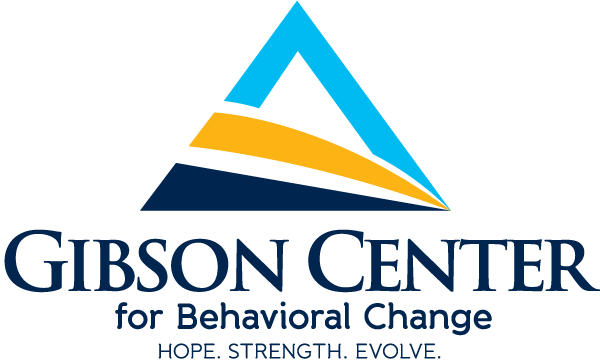Stress is an inevitable part of life. Whether it’s from professional challenges, financial pressures, or personal struggles, we’ve all felt overwhelmed at some point. Unfortunately, stress can lead to harmful coping mechanisms, such as substance use, as individuals seek relief. During National Stress Awareness Month, we want to shed light on the connection between stress and substance use and provide actionable advice to help break the cycle.
The Gibson Center for Behavioral Change understands the profound effect that stress can have on our lives, and offers compassionate services to support individuals on their path toward recovery. Recognizing the early warning signs and exploring healthier coping strategies can pave the way to a healthier, more fulfilling life.
How Stress and Substance Use are Connected
Stress activates physiological and psychological responses in the body, commonly referred to as “fight or flight.” While this response can be helpful in short bursts, chronic stress leaves the body in a prolonged state of tension. People experiencing long-term stress may turn to substances like alcohol, prescription medications, or illicit drugs to dull their feelings and escape the stress.
The issue is that substance use doesn’t eliminate stress. On the contrary, it creates a new layer of challenges, such as dependency, health problems, financial strain, and damaged relationships, further increasing stress levels and perpetuating a destructive cycle.
Breaking the Stress and Substance Use Cycle
The combination of stress and substance use can feel insurmountable, but it’s important to remember that recovery is possible. Breaking the cycle begins with understanding underlying stress triggers and replacing harmful habits with healthier coping mechanisms.
Here are five actionable steps for anyone looking to make a change:
- Recognize and Understand Your Triggers
Start by identifying specific stressors in your life. Is it work deadlines? Family conflicts? Financial burdens? Once you’ve pinpointed what’s causing your stress, you can start addressing it more effectively. Keep in mind that stress looks different for everyone, and your triggers might not always be obvious. - Seek Professional Support
Breaking free from substance use often requires professional guidance. Treatment centers, such as the Gibson Center for Behavioral Change, provide specialized programs tailored to individuals dealing with co-occurring issues like stress and addiction. Services such as medication-assisted treatment, residential care, and outpatient programs are available to help you take the first steps toward recovery. Browse our addiction recovery services. - Build Better Stress-Relief Habits
Replacing unhealthy coping mechanisms with positive activities can transform your response to stress. Here are some calming and productive habits to try:- Engage in physical activities like yoga, walking, or cycling.
- Practice mindfulness techniques, such as meditation or journaling.
- Create and stick to a consistent sleep schedule.
- Pursue hobbies that bring you joy, such as painting, gardening, or reading a good book.
- Prioritize Connection
Isolation worsens both stress and substance use disorders. Reaching out for support from loved ones, joining recovery groups, or seeking a counselor can make a significant difference. The Gibson Center community emphasizes connection among peers, offering a safe place to heal and grow. Feeling seen and supported can be a powerful remedy for stress. Learn more about our community. - Focus on Incremental Progress
Recovery is not an overnight process. It’s essential to focus on small, meaningful steps and celebrate every win, no matter how minor it seems. Whether it’s making a phone call for help, completing your first sober week, or finding a new way to manage stress, these achievements matter.
How Gibson Can Help
The Gibson Center for Behavioral Change is committed to helping individuals regain control of their lives. Whether you’re seeking detox services, transitional housing, or tools to help manage stress, we are here to guide you at every step. Our multidisciplinary approach ensures that each person receives tailored support for their unique needs.
Resources to Explore:
- Learn about our specialized care for people with co-occurring disorders.
- Take advantage of the new Naloxone Vending Machine to safeguard yourself or others.
You are Not Alone
Stress and substance use often feel isolating, but hope is never out of reach. At the Gibson Center for Behavioral Change, we provide the support, encouragement, and resources necessary to empower you toward recovery. Use this National Stress Awareness Month as an opportunity to reflect on your relationship with stress and take one small step toward change.
If you or someone you know is struggling with substance use, don’t wait. Contact us today, and start moving toward a healthier future.
Remember, there is no shame in seeking help. You’re not just breaking a cycle; you’re building a brighter, more resilient version of yourself. Together, we can inspire change–one step at a time.

